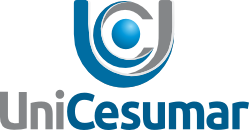Urban solid residues as a sustainability system in Maringá PR Brazil
Keywords:
Urban Solid Residues, Maintainable Development, Selective Garbage Collection.
Abstract
Few towns and cities invest in the treatment of urban residues, in the population’s conscience-raising, in programs of selective garbage recycling and in organic residues. A few make use of economical instruments, such as the ecology tax and other municipal taxes. Current research focuses on a discussion on the correct sustainable disposal of urban solid residues. Such an objective may be achieved by the practice of simple environmental measures. Environmental measures for the reduction of urban solid residues within the garbage dumping area and sanitary embankments are pointed out and the manner the municipality of Maringá may intervene in the understanding of the population so that some economical instruments favor the treatment of urban solid residues. The decrease in urban solid residues in garbage dumping areas and sanitary embankments may be achieved by joined ventures between the municipal government, the population of the municipality and associations or recycled material cooperatives. They will contribute towards cost decrease of non-renewable and renewable resources, causing in the population a greater interest in the environmental issue. Eventually, these activities may trigger a series of initiatives benefiting environmental conservation.
Published
2010-07-19
Section
Environment
A Revista se reserva o direito de efetuar, nos originais, alterações de ordem normativa, ortográfica e gramatical, com o intuito de manter o padrão culto da língua, respeitando, porém, o estilo dos autores. As opiniões emitidas pelos autores são de sua exclusiva responsabilidade.
Os direitos autorais pertencem exclusivamente aos autores. Os direitos de licenciamento utilizado pelo periódico é a licença Creative Commons Attribution Creative Commons Atribuição 4.0 Internacional. São permitidos o compartilhamento (cópia e distribuição do material em qualquer meio ou formato) e adaptação (remixar, transformar, e criar a partir do trabalho, mesmo para fins comerciais), desde que lhe atribuam o devido crédito pela criação original.
Creative Commons Atribuição 4.0 Internacional. São permitidos o compartilhamento (cópia e distribuição do material em qualquer meio ou formato) e adaptação (remixar, transformar, e criar a partir do trabalho, mesmo para fins comerciais), desde que lhe atribuam o devido crédito pela criação original.
Os direitos autorais pertencem exclusivamente aos autores. Os direitos de licenciamento utilizado pelo periódico é a licença Creative Commons Attribution
 Creative Commons Atribuição 4.0 Internacional. São permitidos o compartilhamento (cópia e distribuição do material em qualquer meio ou formato) e adaptação (remixar, transformar, e criar a partir do trabalho, mesmo para fins comerciais), desde que lhe atribuam o devido crédito pela criação original.
Creative Commons Atribuição 4.0 Internacional. São permitidos o compartilhamento (cópia e distribuição do material em qualquer meio ou formato) e adaptação (remixar, transformar, e criar a partir do trabalho, mesmo para fins comerciais), desde que lhe atribuam o devido crédito pela criação original.

